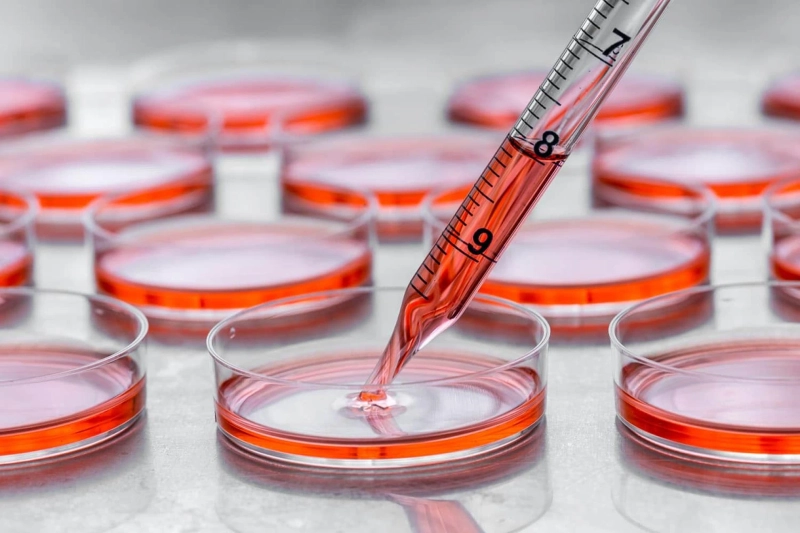For people interested in learning more about how allograft stem cell treatment could be advantageous, researching allograft stem cell therapy might be a challenging job. While allograft stem cell therapy has the potential to be a breakthrough treatment option when done appropriately for specific illnesses, it is not without its drawbacks. On the other hand, there is a great deal of disinformation concerning allograft stem cells that is available. There are some clinics who are not upfront about the source of their allograft stem cells, and others that overstate or simply lie about the efficiency of their allograft stem cells for a certain ailment.
Whether an allograft stem cell clinic is upfront about the source of their allograft stem cells, how do you know if the allograft stem cells they are using are the proper sort of allograft stem cells and if they would be beneficial to you? Throughout this essay, we'll go over the many types of allograft stem cells, as well as which ones are most effective in medical applications for specific illnesses.
THE DIFFERENT KINDS OF ALLOGRAFT STEM CELLS
An 'allograft stem cell' is defined as an undifferentiated cell of a multicellular organism that is capable of giving rise to an indefinite number of cells of the same kind, and from which certain other types of cells can be derived by differentiation into other cell types.
Allograft stem cells are classified into three types:
Allograft stem cells derived from embryonic tissueAllograft stem cells that are not embryonic (adult)Allograft stem cells that have been induced to become pluripotent (iPSCs)Understanding the differences between pluripotent, multipotent, and totipotent cells is also advantageous. Totipotent allograft stem cells have the ability to differentiate into any cell type in the body. In addition, they contribute to the formation of extraembryonic placental cells. Pluripotent allograft stem cells have the potential to differentiate into any cell type in the body. Multipotent allograft stem cells have the ability to differentiate into a variety of cell types. They are, nevertheless, more limited in their capabilities than pluripotent cells.
MSCS
Multipotent allograft stem cells are the most prevalent type of allograft stem cells that are currently employed in cell therapy. These cells are also referred to as mesenchymal stromal stem cells in some circles (MSCs). Mesenchymal allograft stem cells are generally found in bone marrow, but they may also be obtained from a variety of different tissues, including cord blood, peripheral blood, the fallopian tube, and the liver and lung of a fetus, among others.
Our MSCs are derived from umbilical cords, which are donated to us. If you saw the Joe Rogan Experience episode with Mel Gibson and Dr. Neil Riordan, you might have heard of mesenchymal allograft stem cells. If you didn't, you should have.
MSCS HAS MANY BENEFITS
It is critical to comprehend the advantages of MSCs as well as the significance of the term "multipotent." First and foremost, you will be able to see through the hype when overzealous doctors or clinics exaggerate the potential of these therapies to their patients. Because MSCs are multipotent, they have the ability to differentiate into a wide variety of cell types and are therefore helpful for a wide variety of therapies. They are not, however, either pluripotent or totipotent. To put it another way, they are unable to differentiate into any cell type.
One clinic recently advertised allograft stem cells derived from animals, which was a first for the facility. To begin with, they were given orally in tablet form. Second, they were hailed as a panacea for virtually every illness or disease that could be imagined. Alzheimer's disease, vitiligo, and multiple sclerosis were among the illnesses listed. Clinics like this prey on folks who aren't well-versed in the field of allograft stem cells. They will market this treatment for uses that have not yet been investigated. Maintain your vigilance.
When you chat with us at Stem Cells LA, we will never make any guarantees regarding the capacity of any treatment to cure any ailment. Allograft stem cell therapy may be a good therapeutic option for some illnesses in certain patients. Others, on the other hand, have yet to show their quality. Finally, only a doctor can assist you in determining whether or not allograft stem cell treatment is appropriate for you.
WE ARE READY TO HELP YOU.
Stem Cells are a type of cell that may be used to regenerate tissue. Patients who are interested in stem cell therapies for arthritis, neuropathy, orthopedic illness, anti-aging, and other conditions will find useful information on the LA website. Additional benefits of stem cell therapy include the ability to speed up the healing process for other surgeries due to their regenerative capabilities.
We at Stem Cells Los Angeles are glad to give informational services to our clients. It is critical to consider the patient's point of view on the matter. We place the highest focus on the safety, privacy, and well-being of our customers. Remember, we're always here to help!
Above all, only a skilled physician can assist you in determining whether or not stem cell treatment is appropriate for you. We may be able to assist you in locating a reputable regenerative medicine specialist in your area. Call us right now to schedule a consultation.



